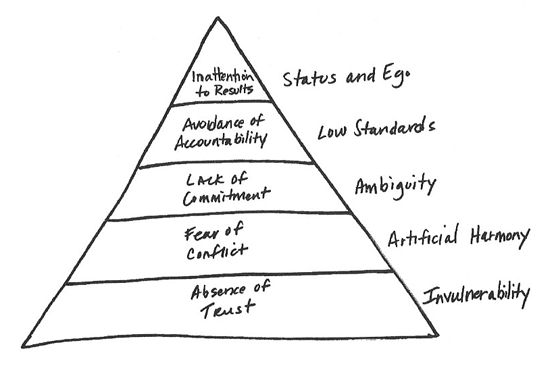7 factors of success for game studios
Download the full report, share with your team: DOWNLOAD REPORT
Grab your FREE TRIAL with our partner PlaytestCloud: https://start.playtestcloud.com/rise
Having worked with over a hundred leaders and founders, I’ve met many who are, at their core, people pleasers.
Of course, most of them wouldn’t label themselves that way. But it’s exactly what we uncover in coaching when we start examining the internal blockers that limit their full leadership potential.
This post is here to offer some practical insights on what you can shift if you identify as a people pleaser.
And no—it absolutely doesn’t mean you’re unfit to lead.
Change starts with awareness. So, let’s start there 💡.
How Can You Tell if You’re a People Pleaser?
When something bugs you, you ruminate on it for days, weeks, sometimes months but don’t feel the urge to act on it.
You often sacrifice your own needs for the “good of the group”.
You comply with situations you disagree with, leading in the long term to resentment and emotional withdrawal.
You brush off problems until they grow too big to ignore—and by then, it’s often too late.
You fear that speaking up or creating discomfort in a group might lead to your team/boss/investor disliking you.
Sound familiar?
I know this well because at the core, I’m a people pleaser too.
Most teams I work with may not recognize it in my leadership style today, because I usually address immediately the elephant in the room. I may have been labeled at times direct, tough, and I don’t stress about it anymore. People who trust me, trust the good intention behind my actions, they don’t run away at the first confrontation. And the ones who do, they are not a fit for our team culture.
That ability to overcome my people pleaser pattern was a muscle I’ve had to train.
The Cost of Being a People Pleaser
When you accept the full responsibility of leading a team and company, being a people pleaser can have costly consequences on the business and people’s lives:
Slow to Fire: You’ve hired someone who isn’t a fit. It might even be your co-founder. You know it, but it takes you months—sometimes years—to take action. Meanwhile, that person dilutes your team’s performance, motivation and culture.
Slow to Pivot or Reset: You know your strategy is off, but you don’t want to create instability in the team. You maintain an artificial harmony in the team, waiting for an external factor to force you to change the course of the company. What if you could be that force of change and take control now?
Low Performance Culture: You create indirectly a culture where no one speaks their truth and solve the real problems.
Burnout: You constantly suppress your needs and truth, storing more and more tension in your body. You no longer feel you want to run this company, but have to, for the team, for investors, but surely not for yourself.
It Didn’t Start With You
In my leadership coaching, I take a holistic approach to examining the root of the business problems. We don’t just fix the surface-level behavior—we go deeper to understand the root cause.
If you’re a people pleaser, I recommend reading Attached and When The Body Says No to understand how it started, and develop more self-compassion and understanding about yourself.
Behind people-pleasing is often a deep-rooted attachment pattern. As a child, you may have learned that maintaining harmony with your caregiver was essential for safety, love, and survival. Expressing your needs wasn’t safe—so you internalized the belief that your needs didn’t matter.
These patterns are formed early in life and run on autopilot until we bring them into conscious awareness. Behind the fear of conflict is often the fear of not being loved.
Unfortunately no amount of external validation will fill the hole of self-love —only inner work will.
What Can You Do to Change?
Change begins with awareness (you’ve made it so far!). The harder next step is taking responsibility.
Do you take full responsibility for who you are, and to grow from your legacy? Or do you stay in the passenger seat, hoping it will all fix by itself one day?
Here’s what I encourage you to try:
Go to the root of the wound. Ask yourself, What don’t I like about myself? Write it all down. Don’t judge—just observe. Awareness is the first step. You may want to work further with a therapist, to heal those wounds.
Practice new habits. Start having small disagreements with people close to you. Observe what happens. Do they abandon you after you speak your truth—or do they stick around and respect you more?
Say ‘no’. This is small, but powerful. Instead of automatically saying yes, practice saying no—or even just: “I’ll think about it and get back to you later.”
Work with a coach. A coach can help you accelerate the transformation to the “new self” by creating a space for awareness, feedback loop, and action.
Own Your Leadership Journey
Embracing your leadership as a people pleaser isn’t about rejecting who you are—it’s about taking responsibility for how you show up.
The stakes are high—for your team, your business, and most importantly, your health.
The most responsible thing you can do right now is take charge of your own transformation. Don’t deny it. Don’t delay it.
With love,
Sophie
🌟 WOMEN LEADERSHIP CIRCLE ON MAY 18 🌟
I am hosting an intimate online circle for women leaders who are interested in joining ORIN. This is an opportunity to connect with each other early, and have a sense of what our future circles and focus will be about.
Sophie Vo will facilitate this circle, opening it with a grounded meditation, sharing her entrepreneurship insights, and will open the space for each participant to share their challenges and the group reciprocates by giving feedback, offering perspectives or solutions.






